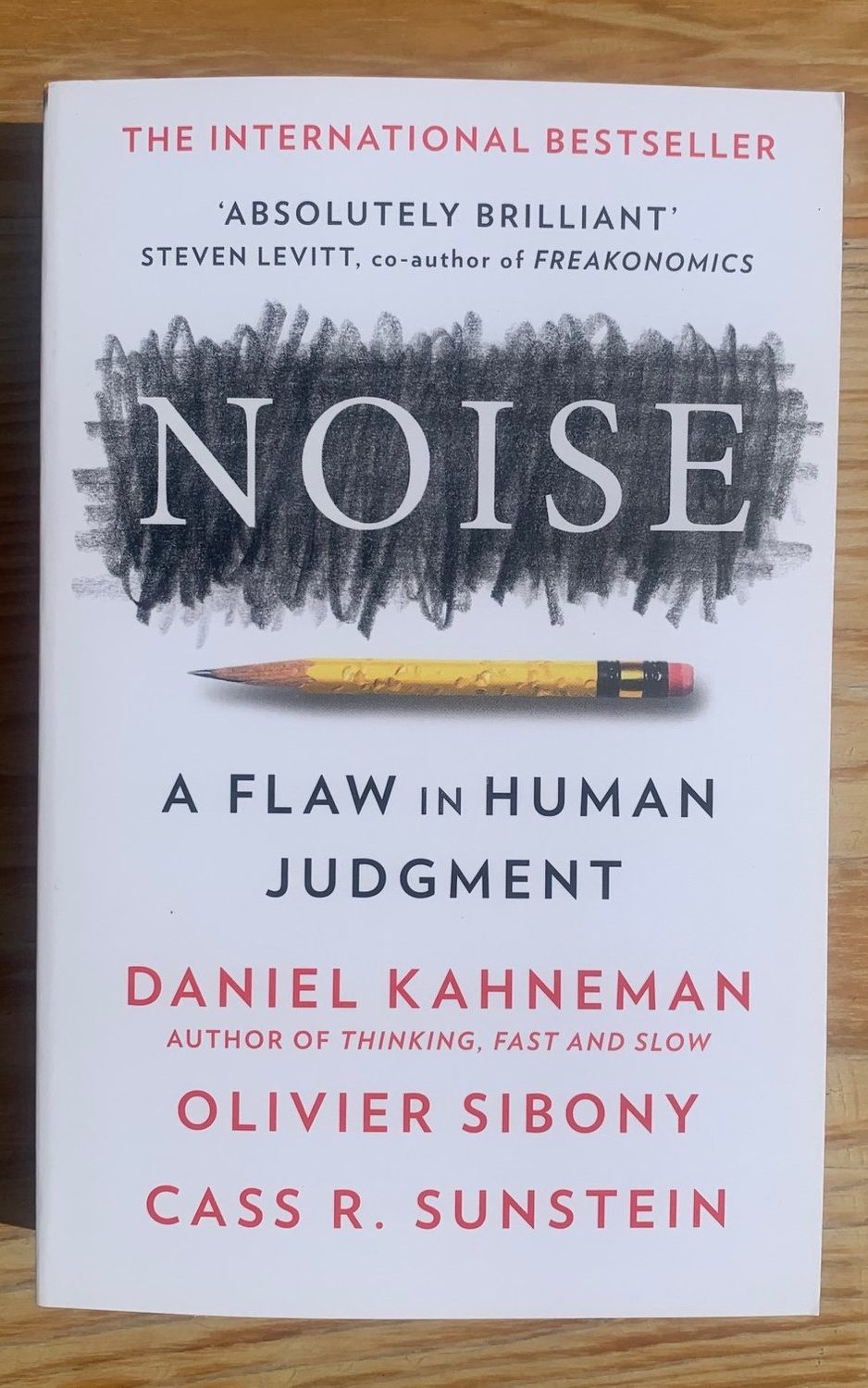
Human judgement is not infallible – no matter how unbiased we are, our judgement will be affected by unrelated thoughts, whether we are tired or hungry, and a hundred other things. This is “noise”. This book catalogues the different kinds of noise and shows how we can at least be aware of it, and hopefully mitigate it.
Their approach is to practise “decision hygiene” to minimise the effect of noise on our judgements. They give six principles:
The goal of judgement is accuracy, not individual expression. Appropriate use of guidelines or algorithms can improve accuracy.
Think statistically, and take the outside view of the case. Consider each case as a member of a reference class of similar cases rather than as a unique problem. Also, moderate predictions will be more accurate.
Structure judgements into several independent tasks. Break down a complex judgement into multiple fact-based assessments and evaluate each one independently of the others. A good example of this is the Apgar score for evaluating the health of newborn babies.
When it was time for me to learn about the Apgar test, I learned it as an acronym of the five criteria: Appearance, Pulse, Grimace, Activity, Respiration. Some time later I discovered that it is actually named after its inventor, a doctor called Virginia Apgar.
Resist premature intuitions. Also, people who make judgments should not be given information that they don’t need and that could bias them, even if that information is accurate.
Obtain independent judgements from multiple judges, then aggregate those judgements. Averaging independent judgements is guaranteed to reduce system noise (but not bias).
Favour relative judgements and relative scales. Relative judgements are less noisy than absolute ones. Judgement scales that call for comparisons will be less noisy than scales that require absolute judgements.
These are not ways to find and eliminate noise – they are ways to prevent it affecting your judgements in the first place. As they say, there may not be much glory to be gained in hygiene, but there are results.